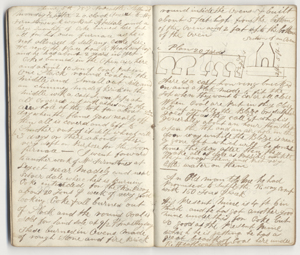
Archive sources
|
Coal mining and coke production: a description of local practicesAccount of a visit to collieries in North Staffordshire, 1837. This account was written by James Ridyard, who was a mining agent working for Lord Francis Egerton in Lancashire, but who was visiting Staffordshire in search of reliable supplies of coke. Coke had been discovered to be the best fuel to use in a blast furnace for smelting iron, replacing the use of charcoal, and so it was crucial for the development of industrial manufacturing. The processes were soon developed within Staffordshire by John Wilkinson at Bradley ironworks. It was produced from coal “coked” or cooked into cinders, and different types of coal produced different quality of coke. Lord Francis Egerton was the younger son of the 2nd Marquess of Stafford and Duke of Sutherland, so had a direct connection with Staffordshire, and he had a large mining interest from the Bridgwater estates. Staffordshire practices clearly differed from those which Ridyard had previously seen and he notes in great detail, with sketches, the differences in the design of the coke ovens as well as the uses for which the coke was already being sold, particularly large amounts to the railway company.
|
